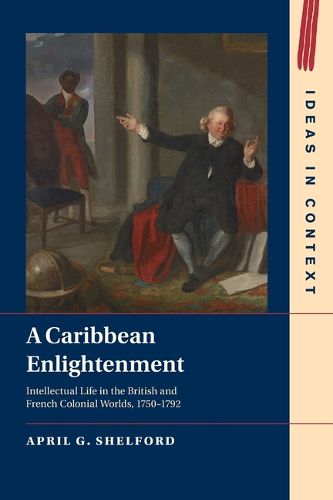Readings Newsletter
Become a Readings Member to make your shopping experience even easier.
Sign in or sign up for free!
You’re not far away from qualifying for FREE standard shipping within Australia
You’ve qualified for FREE standard shipping within Australia
The cart is loading…






Exploring the intersection of Enlightenment ideas and colonial realities amongst White, male colonists in the eighteenth-century French and British Caribbean, A Caribbean Enlightenment recovers a neglected aspect of the region's history. Physicians to planters, merchants to publishing entrepreneurs were as inspired by ideologies of utility and improvement as their metropolitan counterparts, and they adapted 'enlightened' ideas and social practices to understand their place in the Atlantic World. Colonists collected botanical specimens for visiting naturalists and books for their personal libraries. They founded periodicals that created arenas for the discussion and debate of current problems. They picked up the pen to complain about their relationship with the home country. And they read to make sense of everything from parenting to personal salvation, to their new societies and the enslaved Africans on whom their prosperity depended. Ultimately, becoming 'enlightened' was a colonial identity that rejected metropolitan stereotypes of Caribbean degeneracy while validating the power to enslave on a cultural basis.
$9.00 standard shipping within Australia
FREE standard shipping within Australia for orders over $100.00
Express & International shipping calculated at checkout
Exploring the intersection of Enlightenment ideas and colonial realities amongst White, male colonists in the eighteenth-century French and British Caribbean, A Caribbean Enlightenment recovers a neglected aspect of the region's history. Physicians to planters, merchants to publishing entrepreneurs were as inspired by ideologies of utility and improvement as their metropolitan counterparts, and they adapted 'enlightened' ideas and social practices to understand their place in the Atlantic World. Colonists collected botanical specimens for visiting naturalists and books for their personal libraries. They founded periodicals that created arenas for the discussion and debate of current problems. They picked up the pen to complain about their relationship with the home country. And they read to make sense of everything from parenting to personal salvation, to their new societies and the enslaved Africans on whom their prosperity depended. Ultimately, becoming 'enlightened' was a colonial identity that rejected metropolitan stereotypes of Caribbean degeneracy while validating the power to enslave on a cultural basis.